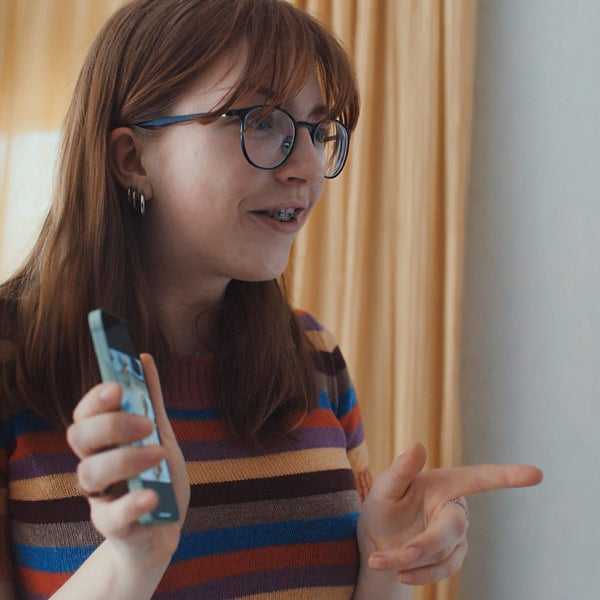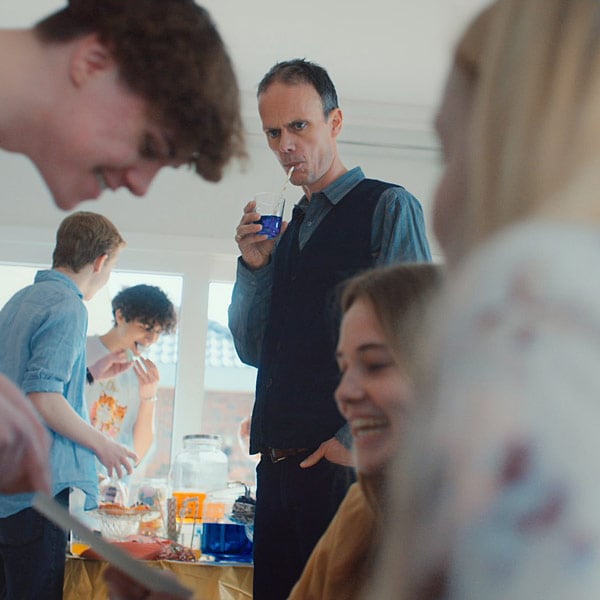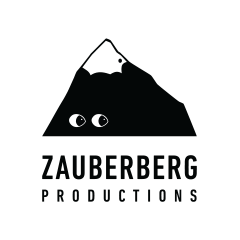Think Before You Share
It's all fun and games...
We get it, sending nudes is fun, flirty, and exciting.
You might want to surprise that special someone you’ve been talking to or maybe the person you fancy has asked you for something a bit more cheeky. You’ll just take a quick, naughty selfie and hit ‘send’, what’s the harm, right?
Even though sending nudes of yourself through social media or instant messaging is super easy and seems normal nowadays, it doesn’t mean that it’s risk-free. Maybe your nude will stay private at first, but you never know where it might end up…That’s why it’s so important to always think before you share.
Don’t expose yourself
The naked truth behind
sharing nudes
Taking and sharing naked pictures of yourself can have serious consequences. Here are 4 things to consider before you snap and send.

Are not really private
Although sharing a nude with someone seems private, forwarding a naked picture is as easy as sending one. Even if you think that the person you are sharing this intimate snap with won’t share it with anyone else, you can never be certain.
Even if the other person might make promises that they will never share your nude, can you really trust them to keep your intimate picture private forever? They might keep their promise at first but at some point decide to share it with friends or publish it on social media, for example, after an argument or a break-up. With 1 in 3 teens admitting to having received non-consensually shared nudes, is this really a risk you want to be taking?

Might haunt you
After you’ve sent a naked picture, people might use your pic to blackmail you by threatening to spread your naked picture online or share it with people at school.
They will pressure you into sending more nudes or giving them money just to keep your picture private. By meeting their demands it will most likely get worse and spiral out of control…

Are a risk you might not want to take
If your nude is shared online, you can take steps to have it removed. However, ensuring that all traces of the image are gone can be difficult. Once a picture is shared on the internet, it never really goes away.
Not only can this impact your reputation as you grow older, this experience can also seriously harm your mental health and well-being. Don’t be afraid to ask for help from a parent, caretaker, or another responsible adult if this happens to you. You’re not alone.

Can be illegal
Any nude or sexual image taken of you while under the age of 18 is considered child exploitation material. That means that you, as well as anyone who receives or shares your nudes, could face serious charges. This could lead to a fine, time in prison, or being added to a sex offender register.
What to do
Has your nude been shared?
Tell your parent or caretaker about it right away or Talk to someone you trust
Tell your parents or caregivers right away or confide in someone you trust if your nude has been shared. If you feel a bit scared or awkward having this conversation with your parents or caretakers face-to-face; try texting or calling them instead. If you need some extra support, there’s no shame in asking a friend to join you as you speak with them.
You can also contact your nearest sexual assault center if you don’t know where to start. They have the resources and support you need to deal with this. They can also refer you to legal counsel and law enforcement if you are unsure which way to turn.
Next Steps: Gather evidence and protect yourself
Flag and report your leaked pics immediately if they appear on a social media platform or website and request that the site administrator removes them.
Also, keep a copy of your chats with the person who shared your nudes. This can be used if you decide to go to the police. You also might want to contact an attorney to seek legal advice or assistance.
- Take a screenshot and report it to the social media platform or website
- Inform the authorities
Block and report
bullying or sexting
Many websites and social media platforms can assist you if your nude is shared online against your will or if you are being bullied because of it.
Here’s how to report this on the most common websites and social media platforms👉
Do you want to have your naked pictures removed from Google? This page will help you get to report content that you would like removed from Google’s services.
Tik Tok is set to public by default, which means that anybody can view your videos and live streams. Changing your account settings might help you stay safe and prevent abuse.
The platform does not permit sexually explicit films or live streams, especially when involving minors under 18 and they ban bullying in comments, posts, or instant messaging.
How to report video or live stream:
- tap the share icon on the video
- select report
- select ‘it is inappropriate.’
- select the reason why you are making a report
- tap report
How to report a comment:
- tap and hold the comment you want to report
- tap Report
- select It’s Inappropriate
- choose the reason you’re making a report
- Press Report.
To report a chat:
- open the convo you want to report
- tap the three dots in the corner of the screen
- select It’s Inappropriate
- tap Report
- choose the reason you’re making a report
- Press Report.
To report an account:
- go to the account you want to report
- tap the three dots in the corner of the screen
- tap Report
- select It’s Inappropriate
- choose the reason you’re making a report
- Press Report.
Follow our instructions below or visit WhatsApp’s website for more information.
If someone bullies, harasses, or forwards naked photos, you can block and report them. Reporting them will ban them from using the app.
How to report or block someone:
- go to the chat you would like to report
- tap the person’s name to open their profile
- scroll down and press report
Is It possible to delete an image I’ve sent to someone?
When you block someone on Whatsapp, they will no longer be able to send you offensive messages. Usually, the other person is unaware that you have blocked them. You are listed as ‘offline’ when they look through their contacts.
Even if you delete messages or pictures from your chat, they can still be visible to others. Video chatting on WhatsApp is not automatically recorded, but it can be. When this happens, you lose control.
Unless you set your account to private, what you tweet on Twitter is public. This means that anyone can read, retweet, and respond to your tweets.
Changing your privacy settings is an effective way to prevent people from tweeting or replying to you. It can also help if people are messaging you directly. Learn more about modifying your privacy settings.
What to do if someone bullies you
- Unfollow anyone who is harassing or bullying you by going to their profile and clicking the ‘following’ button.
- Block anyone harassing or bullying you by going to their profile, tapping the three dots (on Android) or the gear (on iOS) in the top right corner, and selecting block.
- When you block someone, they can no longer contact or follow you. You can always unblock them in the future if you want to.
You can also report someone to Twitter if they create new accounts to harass you or post your naked photo.
Instagram is set to public by default, so anyone can see your images – even if you don’t know who they are. Setting your profile to private can aid in the prevention of bullying and keep you safe. Learn more about changing your privacy settings.
Unless you add them to your story, live streams shared with your followers will disappear after they finish. However, people can still screenshot or record it, and Instagram cannot delete it.
Most naked images violate Instagram’s policies, and nudes of people under 18 are never permitted.
Report a nude or something you find threatening
In the app:
- Press the three dots in the upper right-hand corner above the image or video
- Select Report and enter the reasons why you want to report the image.
- You can also report someone bullying, threatening, or sending photos to you via direct message.
If someone is bullies, threatens you, or sends photos via direct message, you can also report that.
In the app:
- open the DM (direct message) from the person you want to report
- press the I in the top right-hand corner
- select Report and enter the reasons you wish to report them
- You can also block this person by pressing selecting Block User.
Instagram won’t notify a user that they are blocked. They won’t be able to find your profile, posts, or story on Instagram once they’ve been blocked. However, they can still refer to you using the ‘@’ symbol. Changing your username can help ensure that they don’t mention it.
The method for reporting abuse varies depending on what you’re reporting. You can learn how to report abuse on the Facebook help page or read Facebook’s reporting and blocking information.
How to report sexting or bullying
The majority of naked images violate Facebook’s policies, and nude pictures of people under 18 are never permitted.
To report a naked picture of yourself, bullying, or something you saw on a live video, click here
On the Facebook app:
- tap the three dots in the top right corner of the post or photo
- if you have to leave feedback, choose to report the post afterwards
- Answer some questions about why you’re making a report.
You can also use Facebook’s form to report an image or choose what best describes what you want to report. Facebook will not reveal your identity to the person you’re reporting. If they can remove the image, they will notify you in your Support Inbox.
Reporting on Facebook Messenger
In the app:
- go to the convo you want to report
- Click the I symbol in the upper right corner
- and select “Something’s wrong.”
- tap what’s happening
- after you’ve left feedback, you can choose whether or not to report or block the person.
Even if you don’t have a Facebook account, you can make a report by filling in this form.
There is a lot of information on Facebook about reporting other types of content that are being used to bully or threaten you.
Because reports are anonymous, the person who is bullying will not know who reported it. If Facebook has been able to assist you, you will be notified in your Support Inbox.
Visit Facebook’s privacy page to Change your privacy settings and control who sees your profile and content.
On Facebook, you can also hide someone. You will no longer see their posts in your newsfeed, but you will remain friends with them.
Developed by




Disclaimer
The AMBER Alert Europe Foundation created this campaign with the aim to raise awareness among teenagers and their parents or legal guardians, by warning them that the creation and online sharing of personal nude images can have substantial and undesirable consequences. It is of the utmost importance to the AMBER Alert Europe Foundation to respect and defend the Rights of the Child and to contribute to the creation of a safe environment for children.
This campaign, including the photoshoot and the whole creation process, was set up with respect to this philosophy. Therefore, for this campaign, the images depicting nudity of a child have been created by a professional photographer in the presence of both of the child’s legal guardians and with their explicit legal consent. By means of digital blurring software, the face and sensitive body parts of the child in the images are concealed and made unrecognizable.
For this campaign, all copyright and related rights on the song ‘Non, je ne regrette rien’ by Édith Piaf are cleared for Europe.
